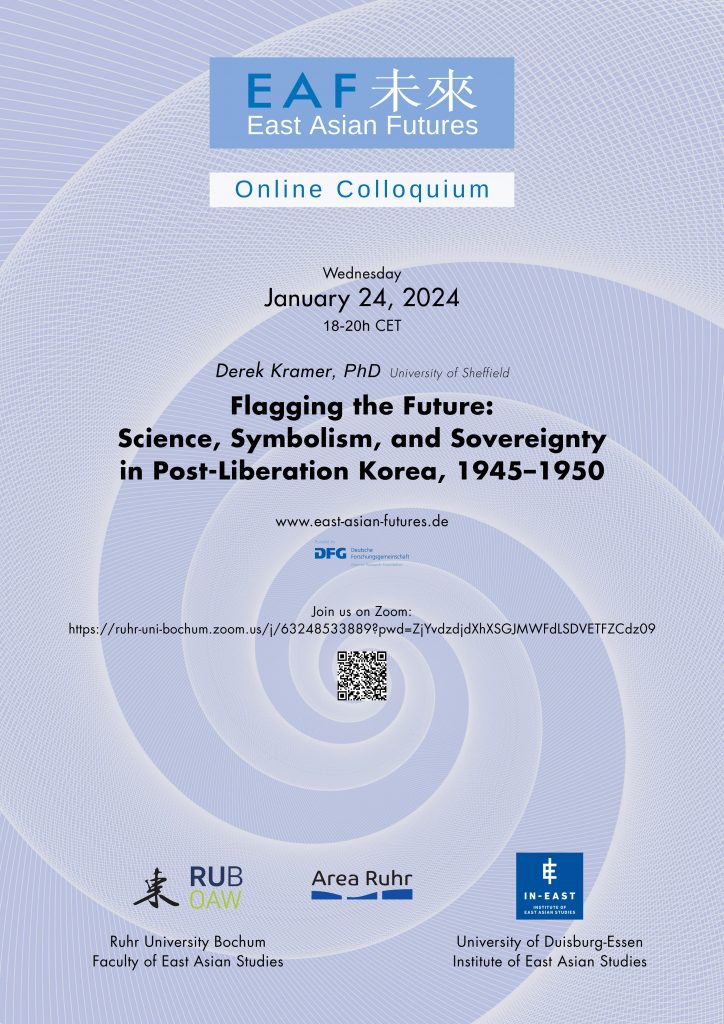The Online Colloquium of the Research Training Group GRK 2833 “East Asian Futures” will ring in the new year with a presentation by Derek KRAMER, PhD. You are cordially invited to attend the lecture.
Derek KRAMER, PhD (UK)
Flagging the Future: Science, Symbolism, and Sovereignty in Post-Liberation Korea, 1945–1950
Wednesday, January 24th, 2024, 6 PM – 8 PM (Central European Time)

Organizer
Research Training Group 2833 “East Asian Futures: Visions and Realizations on National, Transregional and Global Scales”, Ruhr University Bochum and University of Duisburg-Essen.
Participation in the zoom meeting:
Registration link: https://ruhr-uni-bochum.zoom.us/j/63248533889?pwd=ZjYvdzdjdXhXSGJMWFdLSDVETFZCdz09
About the speaker
Derek KRAMER, PhD, is a lecturer in Korean Studies at the School of East Asian Studies at the University of Sheffield. He held research posts at Korea University, the University of Cambridge, and the University of Wisconsin-Madison. He obtained his degree in East Asian Studies from the University of Toronto in 2021. His work focuses on the history of science in modern Korea. At present, he is working on a book manuscript that explores the cultural and intellectual responses to the atomic age in early Cold War North and South Korea. You can find out more about Dr Kramer via his personal website: https://www.sheffield.ac.uk/seas/people/academic-staff/derek-kramer.
Abstract of the lecture
This study examines the introduction of North Korea’s Republican Flag to underscore the role of science in the marshalling of postcolonial political authority. Rather than understand science as simply a mode of knowledge production, the topic is approached as a universalizing discourse generative of political authenticity. The article maintains that this latter expression of the field facilitated and justified the circulation of North Korea’s new national banner. Officially adopted by Pyongyang in 1948, the creation and composition of this symbol of sovereignty has generally been understood as an expression of Soviet influence and North Korean state power. However, by highlighting the circulation of the flag outside of the Northern and by focusing on the assertions that accompanied its introduction, this article attends to how Korea’s Republican Banner enjoyed a social currency rooted in the scientific and progressive traits assigned to the marker.
For further information, please contact info@east-asian-futures.de.
